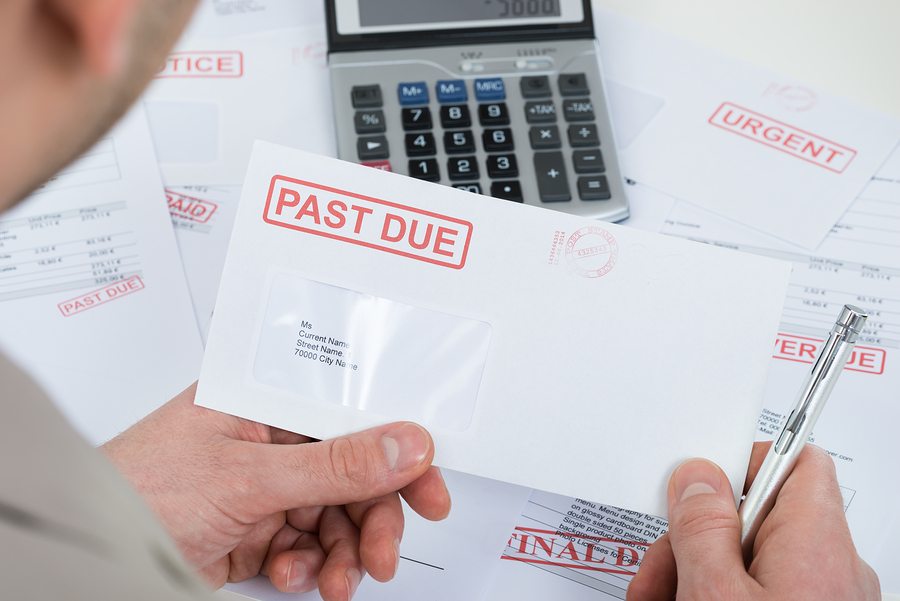When a debt slips into collections, you face two possible paths: paying the original creditor or working with the debt collector. The right move depends on whether your account has already been sold, how much money you have on hand, and what you want to happen with your credit report.

Paying the original creditor usually keeps things simpler, but that option may not be on the table if the account has been sold. On the other hand, paying a debt collector can sometimes mean settling for less than you owe, though it comes with its own trade-offs.
Why Paying the Original Creditor Is Often Better
Settling directly with the original creditor usually works out more favorably. They still want to keep you as a customer if possible, and they may be more flexible when it comes to removing late fees or working out a payment arrangement.
Here are a few reasons this route is usually better:
- Credit reporting: Paying the original creditor can sometimes result in the account being marked “paid as agreed” or “paid in full,” which is less damaging on your credit report than a collection entry.
- Lower risk of extra fees: Debt collectors often tack on interest and court costs. By settling with the original creditor, you avoid those add-ons.
- Better negotiation leverage: If your account is still with the original creditor, you may have a better chance of working out a settlement before it is sold.
When You Might Have to Pay the Debt Collector
If the debt has already been sold, the original creditor no longer owns it and cannot accept payment. At that point, the debt collector is the only one with authority to settle or collect.
There are also times when dealing with a debt collector could save you money. Debt buyers often pay pennies on the dollar for accounts, which gives them room to settle for less than the full balance.
Consider these situations where paying the debt collector makes sense:
- Debt already sold: If the creditor confirms that ownership has been transferred, you must pay the collector.
- Large discount offered: Some collectors settle for 30–50% of the balance in a lump sum.
- Lawsuit risk: If the collector has filed or threatened legal action, negotiating a settlement could prevent a judgment.
How to Know If Your Debt Was Sold to Collections
It’s important to confirm who currently owns your debt before sending any payment. Paying the wrong party can cause delays and may not resolve the account at all.
Here are a few ways to confirm whether your debt has been sold to collections:
- Creditor notice: The original creditor will usually send a letter stating the account has been charged off or sold.
- Collection letter: A debt collector is required by law to send you a written notice within five days of first contacting you.
- Credit report entry: Your credit report may show both the charged-off account and a separate collection account.
- Phone call confirmation: You can call the original creditor and ask whether they still own the account.
How Paying the Original Creditor Affects Your Credit Report
If your debt is still with the original creditor, paying them directly usually leaves you in a stronger position. Once you pay, the account may be reported as “paid in full” or “paid as agreed,” which looks better to future lenders than a collection entry.
Even if the creditor accepts less than the full balance, the account may be marked as “settled.” While this still signals that you didn’t pay everything you owed, it is far less damaging than a collection or judgment. Some creditors will also agree to remove late fees or re-age the account, which makes it appear more current on your credit report.
How Paying a Debt Collector Affects Your Credit Report
Paying a debt collector stops collection calls and can keep you out of court, but it does not erase the negative history from your credit report. The original creditor’s charge-off remains, and the collection account shows as “paid collection.”
This outcome is better than leaving the account unpaid, but it does not boost your credit score as much as settling with the original creditor. Still, some collectors will agree to request deletion of the collection entry—often called “pay for delete”—if you negotiate it in advance and get the agreement in writing.
Steps to Negotiate With the Original Creditor
If your account is still with the original creditor, you have more room to negotiate. A clear plan before you call will increase your chances of success.
Follow these steps when working with the creditor:
- Know your budget: Decide what lump sum or payment plan you can afford before contacting them.
- Ask for a settlement: Offer less than the full balance but enough to be reasonable. Start low and allow room for counteroffers.
- Request account re-aging: Some creditors will move the account back to “current” status once you make a payment.
- Use credit reporting as leverage: Ask if they will report the account as “paid in full” or “paid as agreed” instead of “settled.”
- Get written confirmation: Never send payment until you have a written agreement stating the terms.
See also: If a Debt Is Not on My Credit Report, Do I Have to Pay It?
Steps to Negotiate With a Debt Collector
If your debt has already been sold, the debt collector is now the decision-maker. They want to recover money quickly, which can work in your favor.
Here are steps to take when dealing with a debt collector:
- Validate the debt: Send a debt validation letter within 30 days to confirm the collector has the legal right to collect.
- Check the statute of limitations: Make sure the debt is still legally enforceable in your state before paying.
- Offer a lump sum: Debt collectors are often more flexible if you can pay one amount right away.
- Consider a pay-for-delete request: Ask if the debt collector will remove the account from your credit report in exchange for payment.
- Protect your account: Pay with a cashier’s check or money order instead of giving bank account access.
- Insist on a written agreement: Get all promises documented before making any payment.
For more information, check out our in-depth article on how to settle your debts with a debt collector.
How to Protect Yourself During Debt Settlement
Settling a debt involves risks, but you can reduce them by taking the right precautions. Always move carefully and document everything.
Key ways to protect yourself include:
- Written proof: Require written confirmation of the settlement terms before sending payment.
- Payment method: Use a secure method like a money order or cashier’s check to prevent unauthorized withdrawals.
- Scam awareness: Watch out for fake collectors demanding payment for debts you don’t owe.
- FDCPA rights: Remember that the Fair Debt Collection Practices Act protects you from harassment and false claims.
- Keep records: Save every letter, agreement, and receipt in case the debt resurfaces later.
Alternative Options If You Can’t Pay in Full
Not everyone can afford a lump sum settlement or a large monthly payment. In that case, other options can help you manage debt while avoiding lawsuits.
Consider these alternatives:
- Credit counseling: Nonprofit credit counseling agencies can help create a structured repayment plan with your creditors.
- Debt settlement companies: Professional negotiators may settle multiple debts on your behalf, though fees can be high.
- Bankruptcy: As a last resort, filing for bankruptcy can wipe out or restructure certain debts, but it carries long-term credit consequences.
Final Thoughts
The decision between paying the original creditor or the debt collector comes down to timing and ownership. If the creditor still holds the debt, paying them usually leaves you in a better position with fewer long-term credit issues. If the account has been sold, the debt collector becomes your only option, and settling may still save you money.
Always confirm who owns the debt, negotiate with a clear plan, and never pay without written proof. Whether you settle with the original creditor or a debt collector, protecting your credit report and avoiding future problems should guide your decisions.




